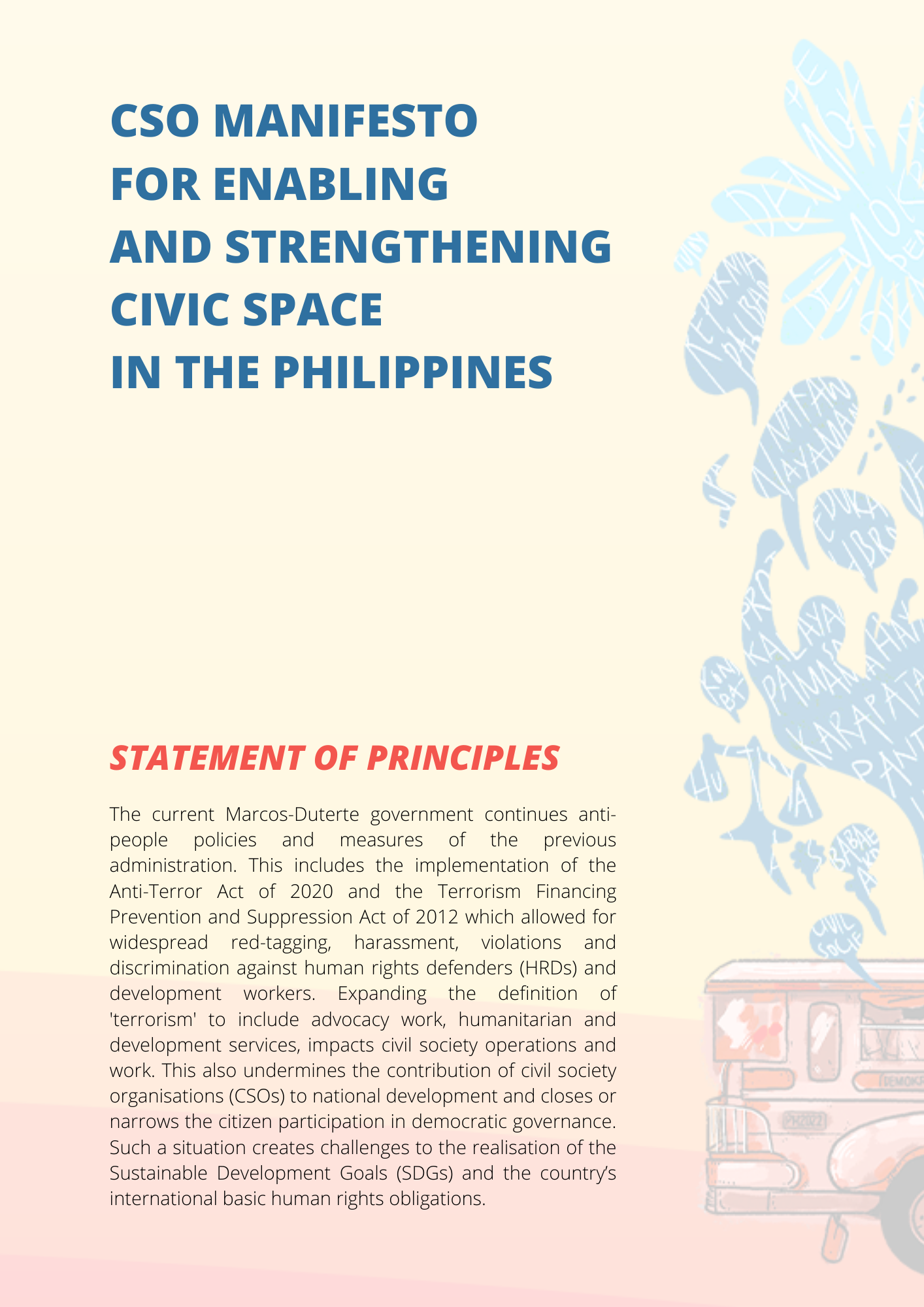- Version
- Download 118
- File Size 570.23 KB
- File Count 1
- Create Date September 6, 2022
- Last Updated September 6, 2022
CSO Manifesto for Enabling and Strengthening Civic Space in the Philippines
CSOs are important stakeholders in ensuring rights-based development and social justice. As a sector, CSOs are independent development actors playing a pertinent role in enabling the people to claim their rights and freedoms, including their right to participate in governance. CSOs also represent the needs and aspirations of citizens in spaces where decisions are made. The positive contributions of CSOs' participation in development discourse and governance are recognised at the national and international levels.
The Philippine Constitution and related laws guarantee basic rights and freedoms, including those relating to CSO operation and work. Democratic mechanisms were established to allow citizen participation in the development, implementation, and monitoring of policies. The realisation of these instruments is affected by the prevailing neoliberal economic framework and the socio-political conditions in the country. The state destroys or attacks the country's democratic institutions, laws and human rights instruments, and mechanisms for citizen participation. Civic space is suppressed while state policies trample the rights of citizens to free assembly, organisation (or membership in associations or organisations), expression and movement.
Despite this situation, HRDs, development workers and their CSOs stand firm in their work. This Manifesto was the product of the National CSO Strategy Workshop on Enabling Civil Society, August 29 and 30, 2022 in Quezon City, Philippines. The Workshop was co-organised by IBON International and the Council for People's Development and Governance, with support from the the International Center for Not-for-Profit Law (ICNL) and the Swedish International Development Cooperation Agency (Sida).
